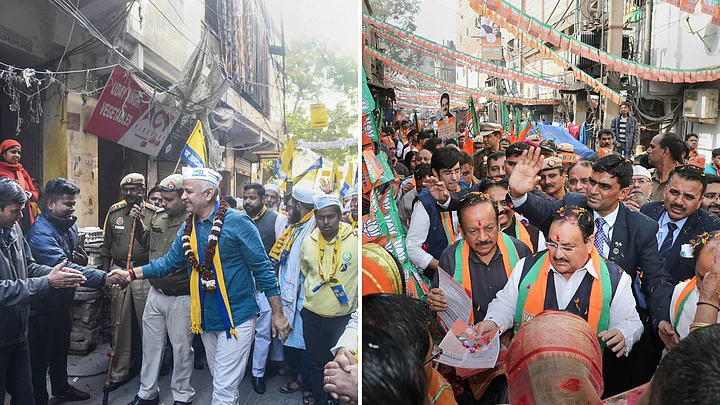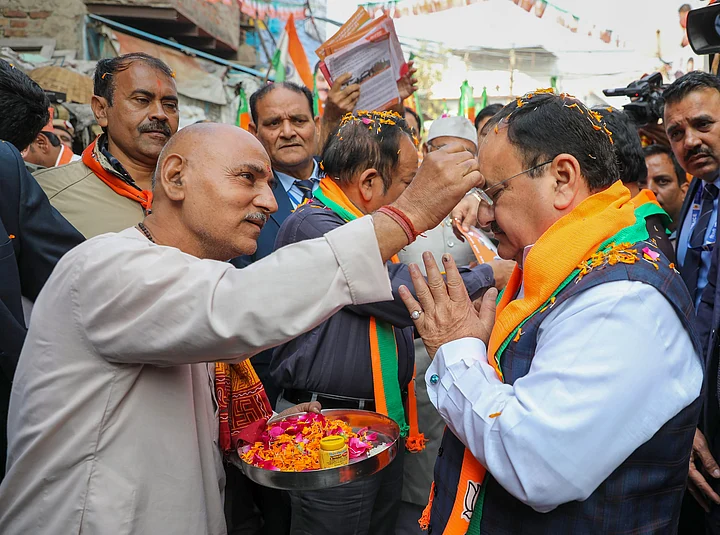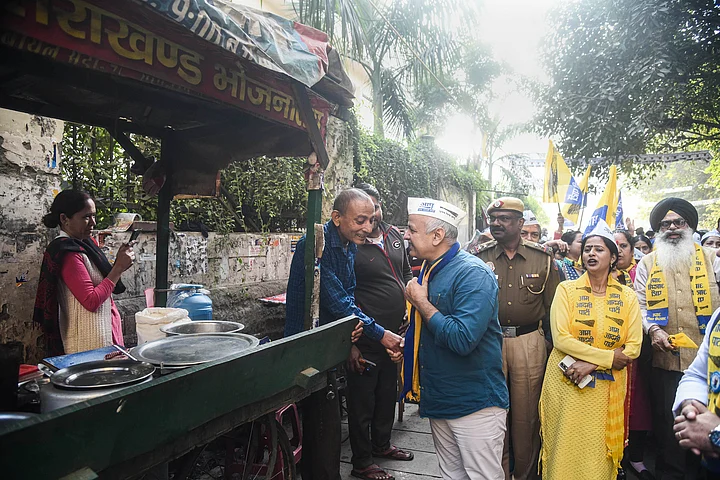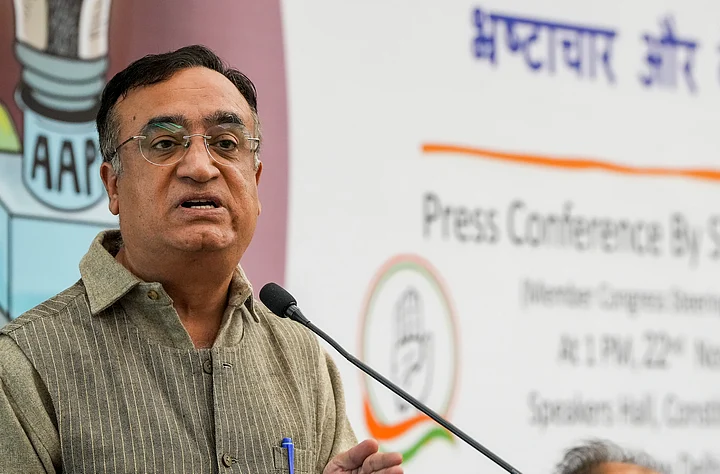With voting for the municipal polls just under a week away, election fever is back in Delhi. The elections for the Municipal Corporation of Delhi (MCD), a civic body that has existed since 1958, are scheduled for 4 December and the results will be announced three days later on 7 December.
Here is all that you need to know about the MCD and the elections.
What is the MCD? It is a civic body that governs most of Delhi and is responsible for running hospitals, managing water supply, maintaining roads and the drainage system, building parks, and street lights, supervising construction work. Waste management and the overall cleanliness of the city comes under the MCD's purview as well.
Which parts of Delhi don't come under the MCD? Two areas of Delhi are governmented by separate bodies. These are:
The New Delhi area hosts all major government offices, residences, and diplomatic missions. It comes under the New Delhi Municipal Council, which answers to the Central Government.
Additionally, the Delhi Cantonment area comes under the Delhi Cantonment Board (DCB), which in turn answers to the Ministry of Defence.
- 01/03
New Delhi: BJP President J P Nadda meets people in Keshav Puram during an election campaign for upcoming MCD elections, in New Delhi, Sunday, Nov. 27, 2022.
(Photo Courtesy: PTI)

- 02/03
New Delhi: Delhi Dy CM and AAP leader Manish Sisodia campaigns for MCD elections at Vinod Nagar, in New Delhi, Sunday, Nov. 27, 2022.
(Photo Courtesy: PTI)

- 03/03
New Delhi: Senior Congress leader Ajay Maken addresses a press conference ahead of the upcoming Municipal Corporation of Delhi (MCD) election, in New Delhi, Tuesday, Nov. 22, 2022.
(Photo Courtesy: PTI)

How large is the MCD? It consists of 250 wards, which is 22 less than the 272 that comprised before it was unified earlier this year, the details of which shall be discussed subsequently. Before the unification, the MCD was split into three bodies - the SDCM (South Delhi Municipal Corporation), the NDMC (North Delhi Municipal Corporation), and the EDMC (East Delhi Municipal Corporation). This trifurcation happened in 2012.
Where does the MCD get its money? The three aforementioned civic bodies raise their own revenue, mostly via taxes, within which the major source is property tax. They also receive grants from the state and central governments.
What was the MCD unification controversy? The Union Cabinet on 22 March approved the Delhi Municipal Corporation Amendment Act 2022, which merged the three existing municipal corporations into a unified body. Earlier, the North and South corporations comprised 104 municipal wards, the East corporation consisted of only 64 wards.
Importantly, in March, the state Election Commission deferred the elections that were scheduled to be held in April in light of the unification bill.
Why was the MCD split into three in the first place in 2012? The government of the time led by Shiela Dikshit claimed that it wanted to serve the people of the city better by decentralising the service.
Did the split work? Not really. An undeniable financial crisis emerged in the North and East municipal corporations due to the demographic advantage of the South. Owing to higher property taxes (due to the "posh" colonies of South Delhi), the South earned around 30 percent of its internal revenue through property tax, while the North and the East earned merely 15 percent and 9 percent respectively.
Additionally, due to the tripling of everything, that is, three commissioners and their staff, expenditure went up and efficiency went down.
Which party currently holds power in the MCD? The Bharatiya Janata Party (BJP) has controlled the MCD for the last 15 years, and has won the last three elections that took place in 2017, 2012, and 2007. In the 2017 elections, the party had won 181 seats of the 272 with 36 percent of the votes. The Aam Aadmi Party (AAP) and the Congress party won 49 and 31 seats respectively.
Why did the BJP want a unified MCD? BJP leaders have maintained that finances and efficiency were always central to their desire of a unified MCD. Member of Parliament (MP) Manoj Tiwari has asserted that "the decision of trifurcation was political and not for the welfare of the residents. By the unification, we would be able to streamline revenue and payments."
What has the AAP argued about unification? The Aam Aadmi Party, which controls the Delhi government, has implied that the BJP knows that it is going to lose control of the MCD after 15 years, and tried to delay the inevitable by forcing the State Election Commission to defer the polls under the garb of the unification bill. "Unification of 3 MCDs could have been done long back and could have been done anytime," AAP Member of Legislative Assembly (MLA) Saurabh Bharadwaj pointed out back in March.
Where is the Congress Party in all of this? The Congress party, which has zero seats in the Delhi government, has nominated candidates for all 250 seats. Over the weekend, the Delhi Congress reached out to Purvanchali voters and reminded them of the party's "contribution to the regularisation of unauthorised colonies," according to India Today.
On the matter of unification, Senior Congress leader Ajay Maken had tweeted in March that the "general consensus is that along with being administratively beneficial, the unification of the Municipal Corporations will improve its financial position." He also, however, stated that in a bid to prevent a delay in elections, the Centre should have brought this bill at least six months earlier than when it actually did.
Are there any reserved seats? Yes, out of the 250 wards, 42 have been reserved for Scheduled Caste (SC) candidates. Additionally, according to the gazette notification issued by the Delhi government last month, 50 percent of the seats are reserved for women out of the reserved SC seats, which means 21 seats for SC women. And, of the 208 seats that are left after the SC reservation, 104 are reserved for the general category and 104 are reserved for women.
Some important numbers: According to SEC data, 1.46 crore people are eligible to vote – 79.86 lakh men, 66.86 women, and 1,061 transgender people. The number of polling stations have been upped from 13,138 in 2017 to 13,665 for the current elections.
The upper limit of expenditure a candidate can incur for campaigning has been increased from Rs 5.75 lakh in the previous election to Rs 8 lakh.



